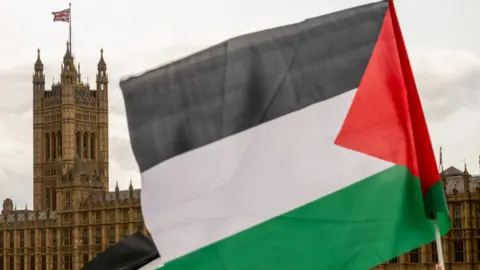In a significant development within the UK’s political landscape, the Commons Foreign Affairs Committee has issued a compelling call for the recognition of the state of Palestine. This move, backed by a majority of its members, places pressure on Prime Minister Sir Keir Starmer to act amidst ongoing humanitarian crises in Gaza. The backdrop to these recommendations comes after France indicated its intentions to recognize Palestine within months, further intensifying discussions around the Palestinians’ quest for statehood.
The committee’s stance is not merely about political symbolism; it argues that the statehood of Palestine is an “inalienable right,” emphasizing that recognition should not be conditional upon preconditions that may delay meaningful action. While Labour and Liberal Democrat MPs on the committee advocate for immediate recognition, two Conservative members argue that such action should only occur as part of a broader political resolution to the Middle East conflict, reflecting the current government’s cautious approach.
Prime Minister Starmer has previously maintained that the recognition of Palestinian statehood should be reserved for a time when it could exert the “greatest impact,” although he has not defined what that moment may entail. In a report published on Friday, committee members countered this position, asserting that the UK must act now while there is still a viable Palestinian state to acknowledge. They warned that waiting for a ‘perfect time,’ which may never come, could have dire consequences.
This call is further supported by public sentiment, as approximately 60 MPs united in a letter demanding immediate recognition of Palestine. London Mayor Sir Sadiq Khan and prominent Labour members, including Dame Emily Thornberry and Business Secretary Jonathan Reynolds, echoed these sentiments, denouncing the humanitarian situation in Gaza as “unspeakable.”
Another critical voice in the ongoing debate is French President Emmanuel Macron, who announced plans to recognize Palestine during a UN meeting in September. Starmer’s prior statements appeared to align with a cautious approach, yet the emerging humanitarian crises complicate his position. He has publicly condemned the conditions in Gaza and emphasized that statehood remains an “inalienable right,” asserting the need for a ceasefire to pave the way for the recognition of a Palestinian state.
In their report, the committee underscored the aspect of conditionality in recognizing statehood, stating that rights should not be subject to political bargaining. This idea resonated among Labour and Liberal members but not with their Conservative counterparts, who suggested that the UK should connect recognition with specific actions aimed at further conflict resolution, such as the resolution of hostilities and the emergence of a non-Hamas-led Palestinian authority.
The significance of these discussions is highlighted by the broader context in which they occur. Approximately 139 countries globally have formally recognized a Palestinian state, although major players like the United States remain firm that any recognition must align with a sustainable peace process. However, skeptics contend that such recognition would not bear substantial weight without addressing questions about Palestinian governance and territorial boundaries.
Moreover, the committee’s report also reflected a consensus on humanitarian issues, calling for a UN-led aid distribution strategy for Gaza, which contrasts sharply with the existing US-backed framework criticized for being inadequate amid escalating civilian crises.
With these discussions unfolding, the pressure mounts on Prime Minister Starmer. The Labour government’s response to this collective call for recognition—and the manner in which they address the humanitarian crises in Gaza—will significantly impact both domestic politics and international relations moving forward. As debates continue, observers will be keenly watching how the relationship between the UK, Israel, and the Palestinian territories develops in light of these pressing humanitarian concerns and political imperatives.











